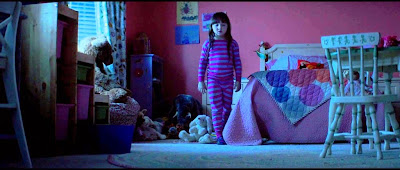 |
| Image courtesy of Radius-TWC. |
Have you ever overheard a person - very possibly homeless and just as likely inebriated in some form or fashion - rapping to somebody on the street about something that seems to make sense only to them, but not necessarily to you or the person listening to them? That's what it's like to experience the Safdies' film as they follow Harley (Arielle Holmes, a former junkie herself), Ilya (Caleb Landry Jones), Mike (Buddy Duress) and their other cohorts as they shoot up, pass out on bathroom floors and comb the streets searching for money.
And I don't mean that pejoratively. "Heaven Knows What" captures what appears to be the actual experience of struggling to get by without a home and being hooked on drugs. This is an intensely unpleasant film, but it's unlikely it could be any other way and remain true to the world which it is depicting.
There's very little plot in the Safdies' film, other than Harley scores, shoots up, crashes, sets out to find more drugs and starts all over again. She is torn between Ilya, whose selfishness and lack of respect for her lead her to very dark places - there's a wrist slashing scene early in the film that might make you nauseous - and Mike, who has his own problems but allows Harley to tag along and, occasionally, get free drugs.
The film's most effective attributes are the creepy electronic score and up-close-and-personal camerawork which, when combined, gives the impression of a late 1970s John Cassavetes movie by-way-of John Carpenter. And Holmes's naturalistic performance - as well as those of her fellow cast members - give the picture a documentary feel, albeit a grim and gloomy one.
If there is any downside to the proceedings, it's that the film's nonstop parade of shooting up and crashing eventually becomes a bit rote. On the other hand, this is likely the point of "Heaven Knows What" and, by all accounts, what it's like to live as Harley and her friends do. I'd recommend the film, but with the caveat that the picture can best be summed up by Dante's "abandon all hope, ye who enter here."







